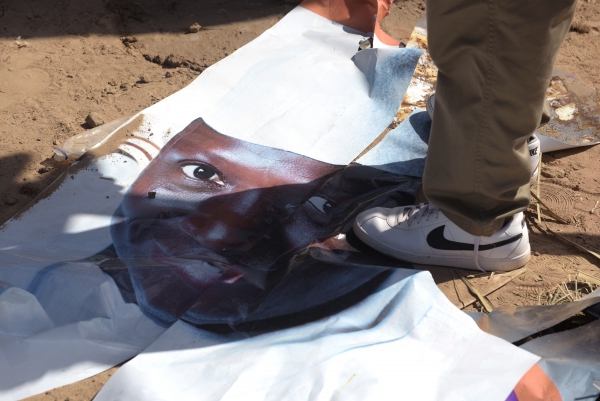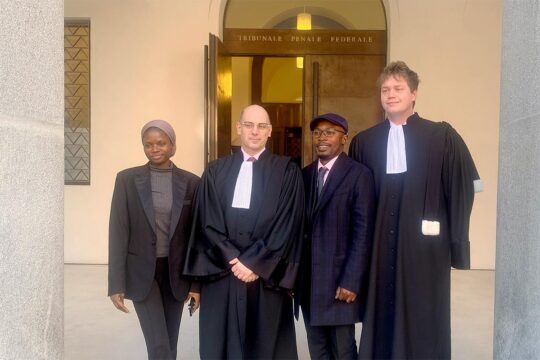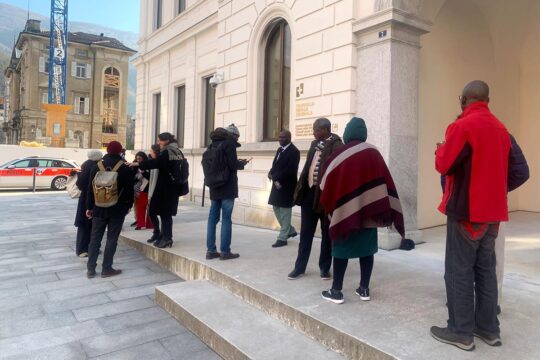This week we looked at Gambia, a small West African country forgotten since its successful transition from 22 years of bloody and madcap dictatorship under Yahya Jammeh.
But a year after the arrival in power in January 2017 of President Adama Barrow – democratically elected in December 2017 --, victims are disappointed.
They feel forgotten and neglected, writes our special envoy to Banjul Maxime Domegni. Among the victims is Yahya Jammeh’s own niece Ayesha, who is now engaged in defending the memory of her father and her aunt, both members of the Jammeh family killed by their own brother Yahya. “At 27, she chose to shoulder a big responsibility of national and even international importance,” writes Maxime Domegni. “She is demanding justice for her own relatives but also for some one thousand victims registered by the Gambia Center for Victims of Human Rights Violations, of which she is a leading light.”
That is not without causing problems for this young woman, notably within her own Jola ethnic group -- that of the former president --, who are “retreating into their ethnic identity, for example viewing with great suspicion the launch of the Truth Commission and the campaign to bring perpetrators of the old regime to justice”.
Ayesha knows no more about the circumstances of her father’s death than other Gambians who, since the fall of the old regime, have become accustomed to learning about some of its horrors in the press. “More than ten years after it happened, you turn on the radio and hear a junguler [member of Jammeh’s militia] telling how he killed your Dad. And you are sitting somewhere listening to that. Your heart breaks once again.”
In an interview filmed on JusticeInfo.net, Marion Volkmann, a human rights activist from Human Rights Watch in charge of the #Jammeh2Justice campaign, explains that a voice must first be given to victims. “Gambians need to tell their story,” she says. She stresses the need for “Gambian political will” to bring the former president and his accomplices to justice. Marion Volkmann says she is optimistic, and thinks that Yahya Jammeh will be brought to justice one day like former Chadian dictator Hissène Habré.
Mali and the CAR
Another country experiencing a difficult transition is Mali, as Serge Michailof from our partner The Conversation explains. According to him the Malian army “is still clearly unable to contain the spread of insecurity”, because “in fragile countries like Mali, most institutions are prey to networks of cronies, and this is a big source of inefficiency”.
“What needs to be rebuilt is not only the Malian army but the country’s whole security system, which requires strong political will to sacrifice cronyism and ensure efficiency,” he explains.
The analysis is similar of the Central African Republic by expert Didier Niewiadowski, who says he fears a partition of the country like that in Sudan. “In the Central African Republic, over the years, the State has become more and more fictitious, especially in the eastern regions near Sudan, South Sudan and the DRC,” he writes. “The split between the east of the country, mainly peopled by Nilotic, Arabic speaking Muslims, and the mainly francophone, Christian and animist west is being exacerbated by the abuses of groups from all origins,” he writes. And, he concludes, “2018 will be a decisive year for the future of the Central African State, whose demise would not be without consequences for the two Congos, Cameroon and Chad”.






